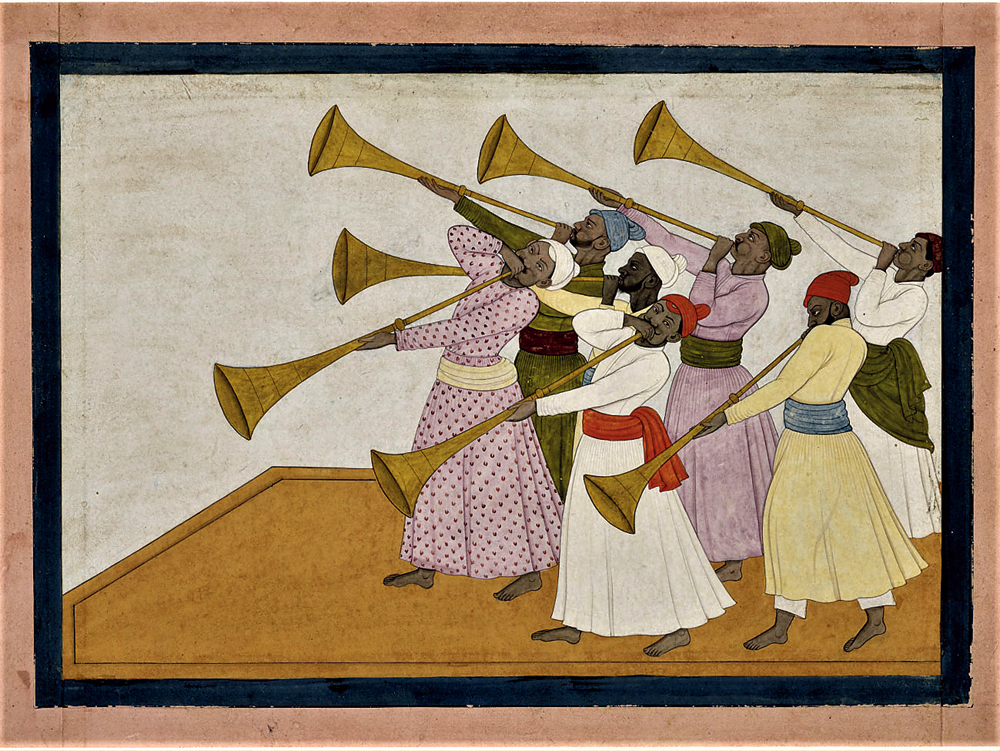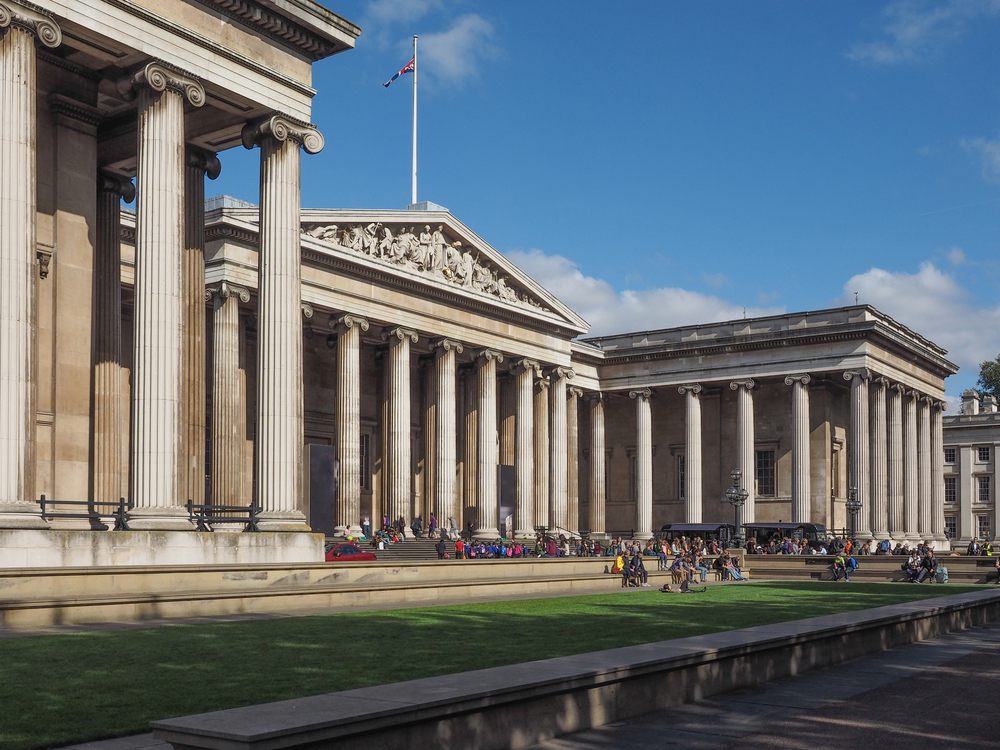An Indian Pahari painting, said to be “a masterpiece unparalleled in North Indian art”, has been acquired by the British Museum at a cost of £440,000 and will, therefore, not be lost to “the nation” — the British nation, that is — through being exported.
The Trumpeters by Nainsukh of Guler has gone on free display in the Museum’s Sir Joseph Hotung Gallery of China and South Asia.
This probably the first time that the British have paid a significant sum of money to prevent the loss of an Indian art object.
The likely buyer, had the British Museum not acquired the painting, is not known. But there was obviously interest from abroad.

‘The Trumpeters’ by Nainsukh of Guler Credit: The Trustees of the British Museum
The painting had its licence for export blocked in 2018 by the secretary of state for digital, culture, media and sport, in order to enable a UK institution to raise the £440,000 required to stop it from being sold overseas.
“Thanks to the support of Art Fund, the National Heritage Memorial Fund and the Brooke Sewell Permanent Fund, it has now joined the collection of the British Museum and will remain in the UK,” a statement said.
“The decision to defer the export licence follows a recommendation by the reviewing committee on the Export of Works of Art and Objects of Cultural Interest, administered by the Arts Council.
“They made their recommendation on the grounds that the painting is of outstanding aesthetic importance and of significant use in the study of Indian history.”
According to the museum, “the painting, thought to have been created between 1735-40, depicts a traditional musical performance in Northern India. It shows seven musicians playing Pahari horns with long pipes known as turhi, their cheeks puffed out with the effort.
“It is a highly impressive and unusual example of the artist’s work, combining aspects of Nainsukh’s early work with some of his later achievements. It has been in a private collection since being purchased by the prominent British artist Winifred Nicholson (1893-1981) during a tour of India, Burma (Myanmar) and Ceylon (Sri Lanka) in 1919-20. After Nicholson’s death, it remained with her family and this is now the first time it has entered a public collection.”










